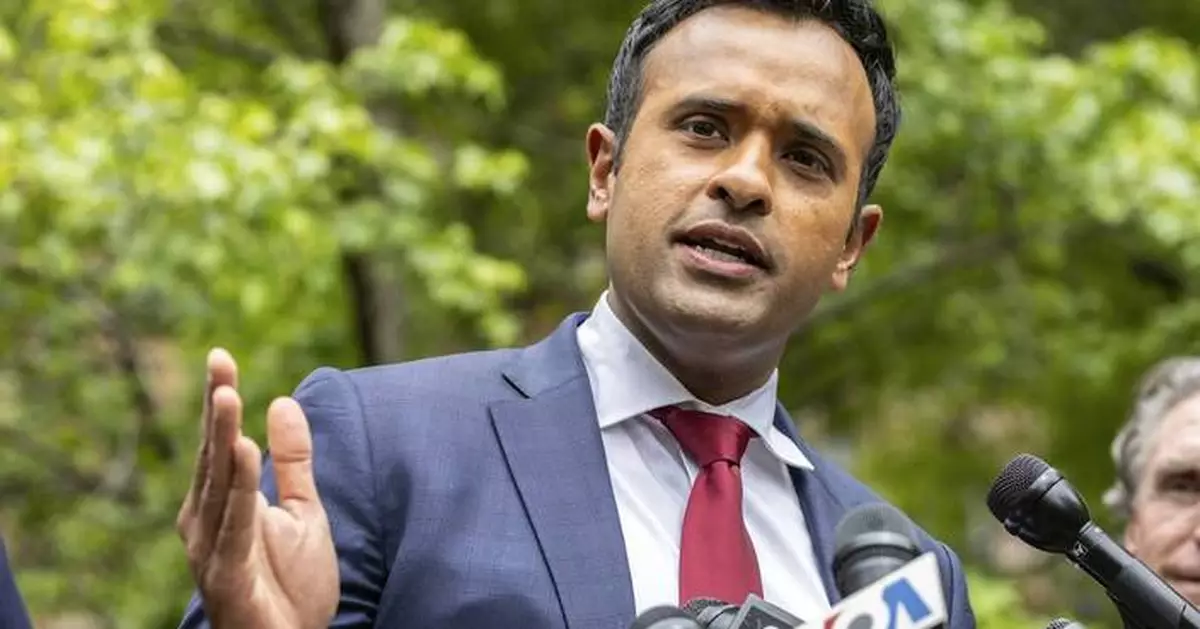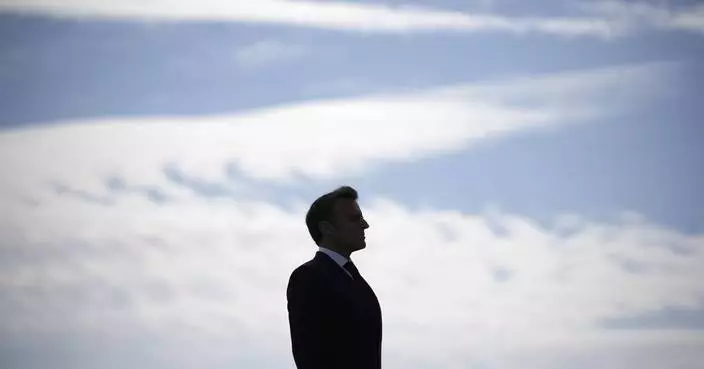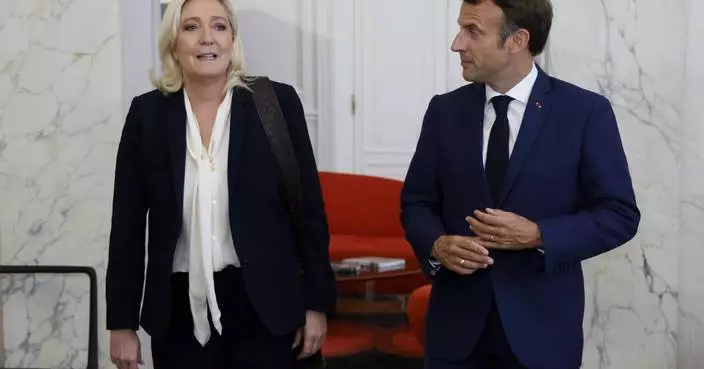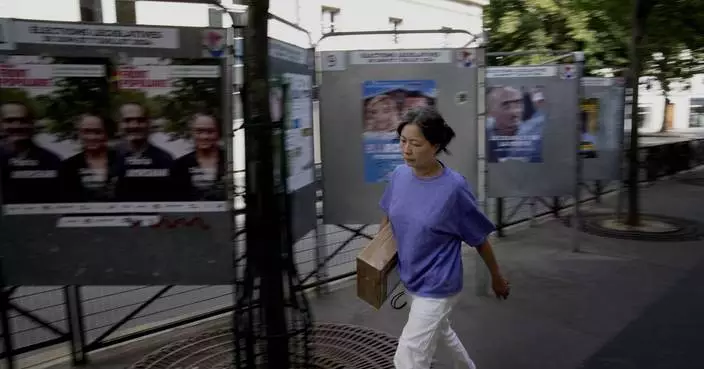CONCORD, N.H. (AP) — A New Hampshire man charged with threatening the lives of presidential candidates last year has been found dead while a jury was deciding his verdict, according to court filings Thursday.
The jury began weighing the case against Tyler Anderson, 30, of Dover on Tuesday after a trial that began Monday. His lawyer did not immediately respond to email and phone messages seeking comment. A court filing said “the government has learned that the defendant is deceased.” Prosecutors have moved to dismiss the indictment.
The U.S. Attorney’s office did not name the candidates. When Anderson was arrested, a spokesperson for Republican candidate Vivek Ramaswamy said that texts were directed at his campaign. Anderson had told the FBI in an interview that he sent similar texts to “multiple other campaigns,” according to a court document.
Anderson was indicted by a federal grand jury in December on three counts of sending a threat using interstate commerce. Each charge provides for a sentence of up to five years in prison, up to three years of supervised release, and a fine of up to $250,000.
Police in Concord, New Hampshire, were asked to help search for Anderson after he failed to show up for court and eventually located a car in a garage at Concord Hospital at about 8:30 p.m. Wednesday, according to Deputy Chief John Thomas.
Officers detected a strong chemical smell coming from the car and called in a hazmat team. Anderson’s body was removed from the car and pronounced dead. There were no weapons found. Thomas said no foul play is suspected at this time.
Anderson was arrested on Dec. 9 and was released Dec. 14. A federal judge set forth several conditions for his release, including that he avoid contact with any presidential candidate and their political campaigns.
Anderson, who was receiving mental health treatment, was also ordered to take all of his prescribed medications.
According to court documents, Anderson had received a text message from Ramaswamy’s campaign notifying him of a breakfast event in Portsmouth. The campaign staff got two text messages in response. One threatened to shoot the candidate in the head, and the other threatened to kill everyone at the event and desecrate their corpses.
The charges say similar texts were sent to two different candidates before the Ramaswamy messages, on Nov. 22 and Dec. 6.
A court document filed when Anderson was arrested included a screenshot of texts from Dec. 6 threatening a mass shooting in response to an invitation to see a candidate “who isn’t afraid to tell it like it is.” Republican Chris Christie called his events “Tell it Like It Is Town Halls.”
A spokesperson for the Christie campaign had thanked law enforcement officials for addressing those threats.
The U.S. Department of Justice doesn’t name victims out of respect for their privacy and our obligations under the Crime Victims Rights Act, a DOJ spokesperson said.
LeBlanc reported from Boston.
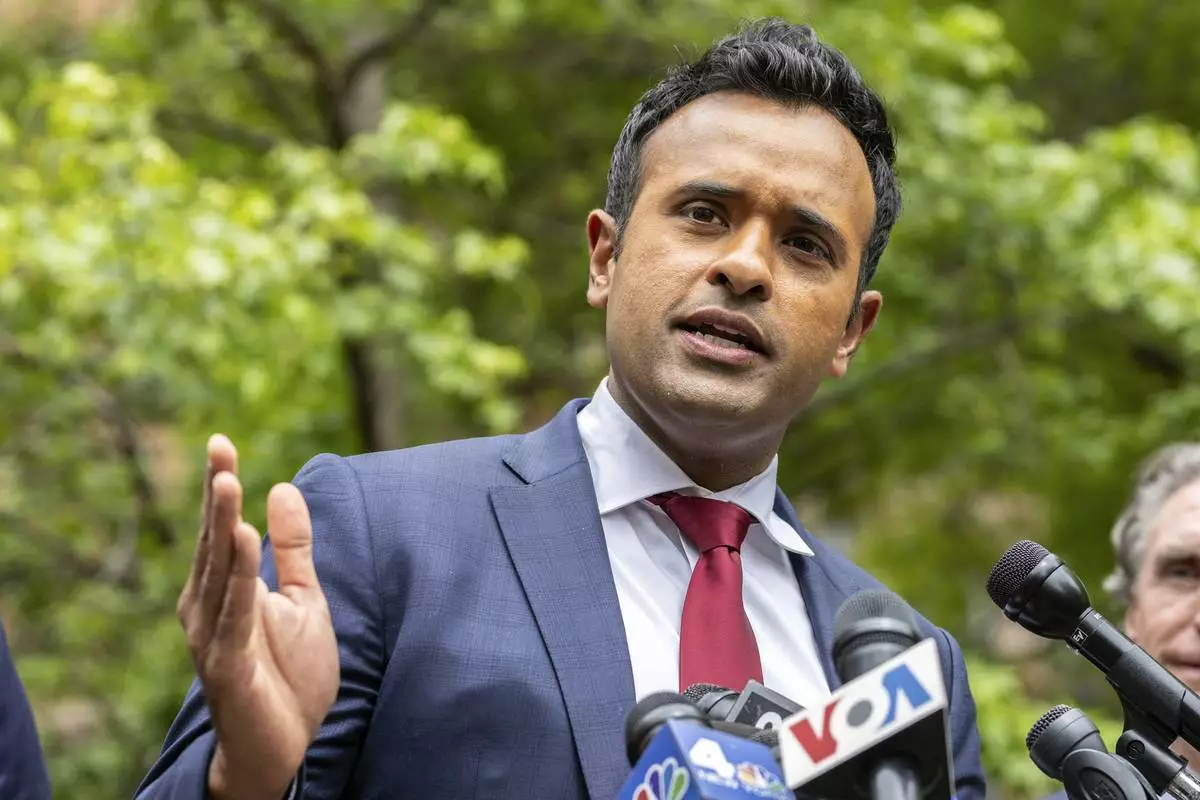
FILE- Vivek Ramaswamy speaks at a news conference across the street from the Manhattan criminal court, Tuesday, May 14, 2024, in New York. A New Hampshire man on trial for threatening the lives of presidential candidates last year has been found dead while a jury was deciding his verdict, according to court filings, Thursday, June 27, 2024. When Tyler Anderson of Dover was arrested, a spokesperson for then-Republican candidate Ramaswamy said that texts were directed at his campaign. (AP Photo/Stefan Jeremiah, File)
LONDON (AP) — Britain’s upcoming general election is widely expected to lead to a change of government for the first time in 14 years. Many analysts believe it will be one of the country’s most consequential elections since the end of World War II.
Ahead of the July 4 vote, The Associated Press takes a look back at other landmark U.K. elections since the war.
——
Britain's general election in 1979 is without doubt the most significant since 1945, with Margaret Thatcher becoming the country’s first female prime minister on a radical Conservative economic agenda.
At its heart, Thatcherism represented a total rethink over the role of the state.
Since Labour's big victory in 1945, a so-called postwar consensus on the economy existed between the two main parties, Labour and the Conservatives. Despite the changes in power, their economic approaches aligned. Governments targeted full employment and would intervene in the economy to pursue that goal through tax and spending policies.
That consensus was getting increasingly frayed through the 1970s as Britain went into an economic tailspin, with inflation running at postwar highs and trade unions increasingly militant in pursuit of their pay claims.
The May 1979 election took place in the wake of the so-called Winter of Discontent, a huge wave of strikes across industries and public services. The mood within the Labour government, led by Jim Callaghan, was downbeat.
Thatcher, who sought to play up to her image as the Iron Lady, said things couldn't carry on as they were. She won a sizeable majority in the election and stayed in power for more than 11 years, a period which saw income taxes slashed, particularly on the wealthy, and the privatization of many industries such as energy and telecommunications.
On the international stage, Thatcher enjoyed a close relationship with her political soulmate, U.S. President Ronald Reagan. Both talked tough on the Soviet Union. She also grew increasingly vocal in her opposition to what was then called the European Economic Community, now the European Union, which ultimately led to her downfall.
Thatcher's premiership, which lasted until she was effectively ousted by members of her own party in 1990, is one of the most controversial in postwar Britain.
Her admirers include current Prime Minister Rishi Sunak and many other senior Conservatives who cite Thatcher as their political inspiration. But to her opponents, Thatcher was a divisive figure whose free-market economic liberalism wrecked local communities and whose growing euroskepticism fueled opposition to European integration that ultimately led to the Brexit vote in 2016.
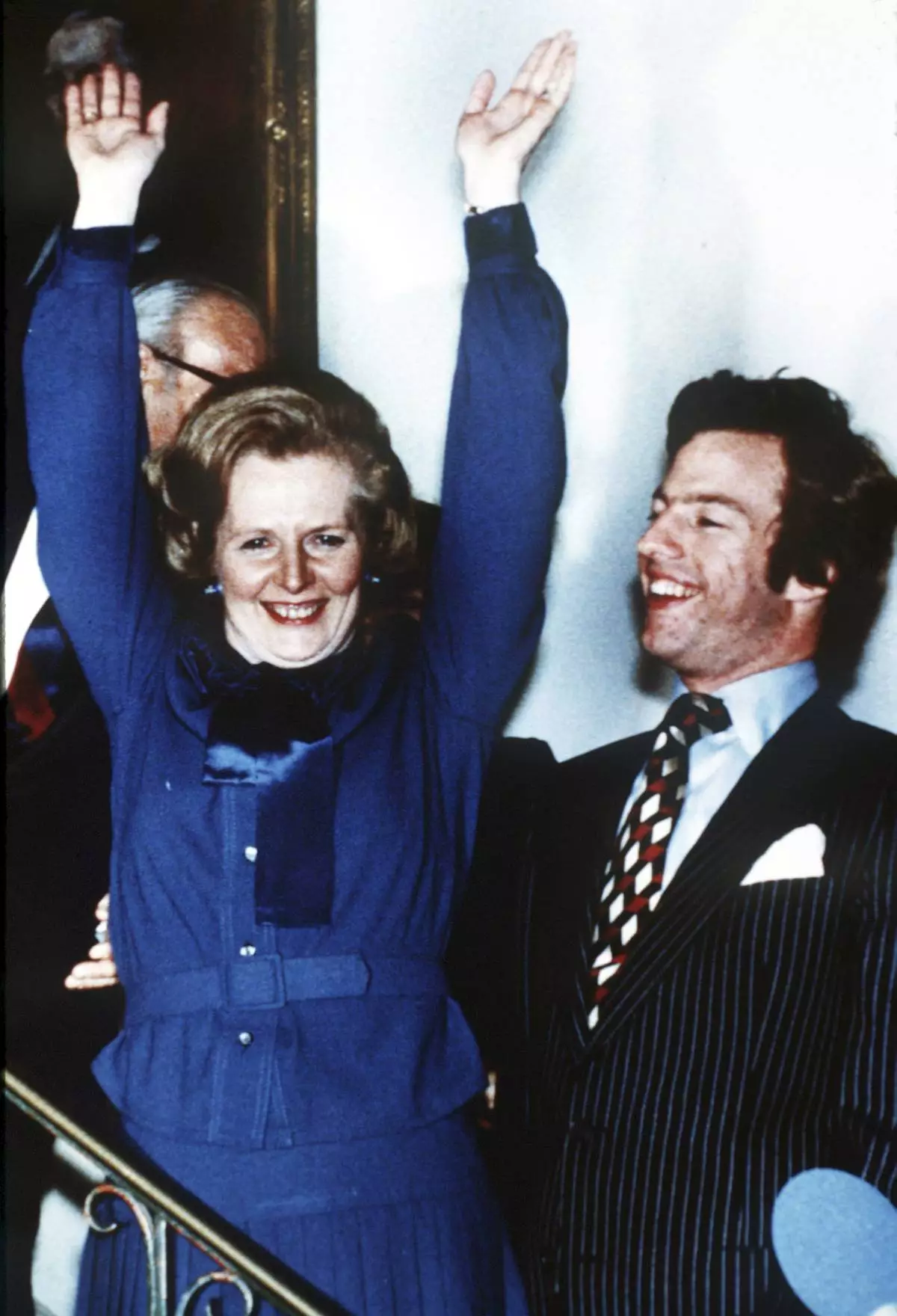
FILE - Britain's Margaret Thatcher waves in celebration at Conservative Party headquarters in London in the early hours of May 4, 1979, after winning the General Election. At right is her son Mark. Britain’s upcoming general election on July 4, 2024, is widely expected to lead to a change of government for the first time in 14 years. Britain's general election in 1979 is without doubt the most consequential since 1945, with Margaret Thatcher becoming the country’s first female prime minister on a radical Conservative economic agenda. At its heart, Thatcherism represented a total rethink over the role of the state. (AP Photo/Bob Dear, File)
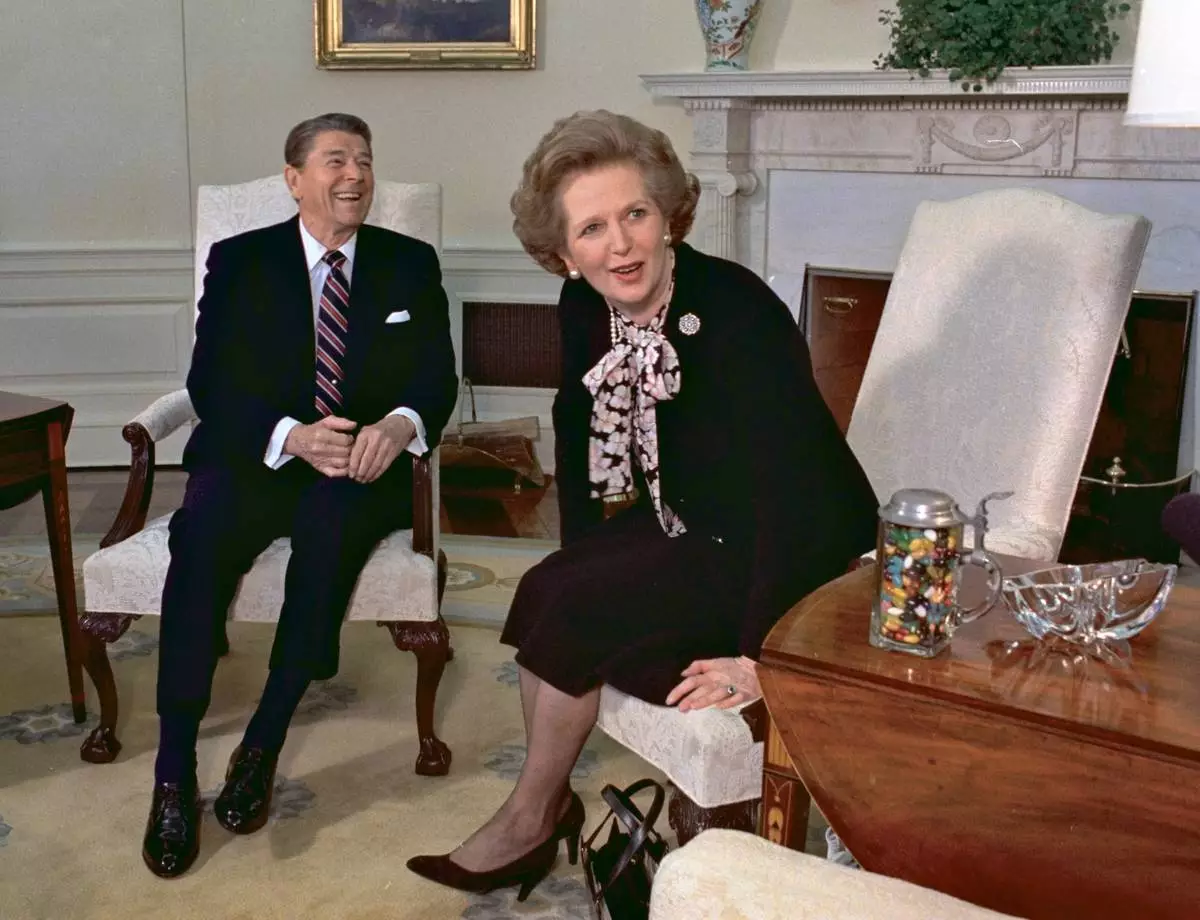
FILE - British Prime Minister Margaret Thatcher meets with US President Ronald Reagan at the White House in Washington, Feb. 20, 1985. Britain’s upcoming general election on July 4, 2024, is widely expected to lead to a change of government for the first time in 14 years. Britain's general election in 1979 is without doubt the most consequential since 1945, with Margaret Thatcher becoming the country’s first female prime minister on a radical Conservative economic agenda. At its heart, Thatcherism represented a total rethink over the role of the state. (AP Photo/J. Scott Applewhite, File)
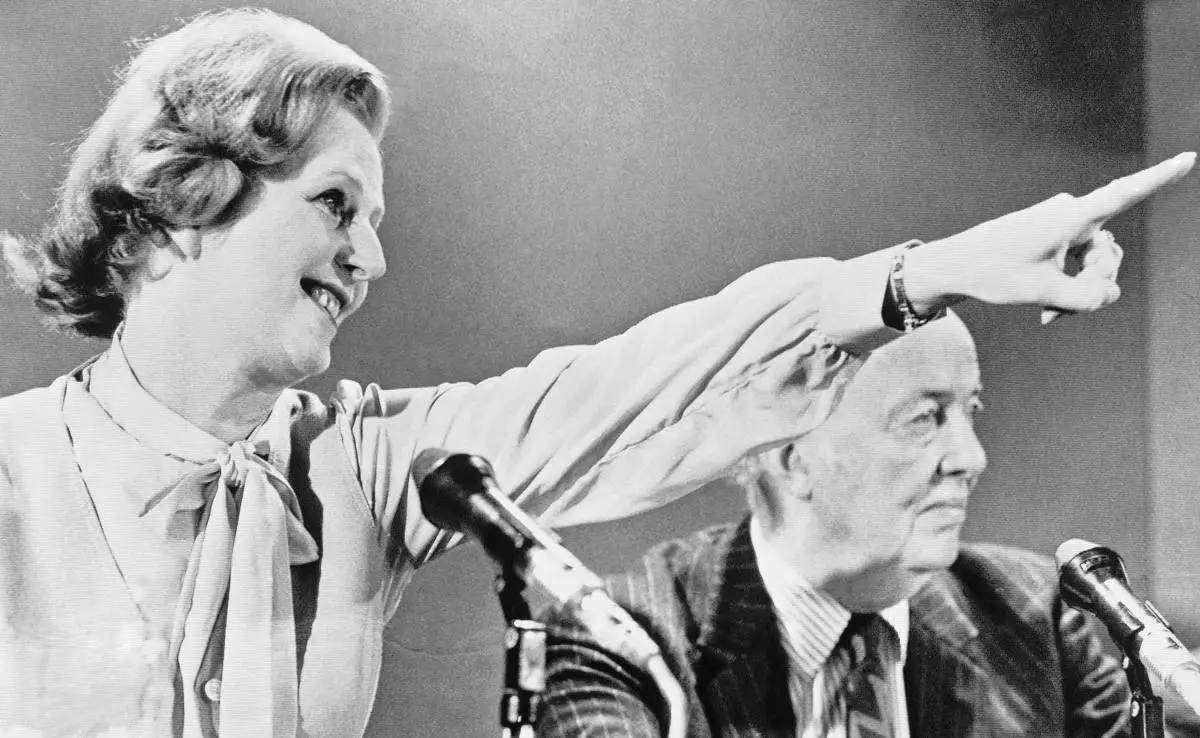
FILE - Britain's Conservative party leader Margaret Thatcher raises her arm and points, while answering questions at a press conference in London, April 11, 1979, launching her party's policies for the General Election. Britain’s upcoming general election on July 4, 2024, is widely expected to lead to a change of government for the first time in 14 years. Britain's general election in 1979 is without doubt the most consequential since 1945, with Margaret Thatcher becoming the country’s first female prime minister on a radical Conservative economic agenda. At its heart, Thatcherism represented a total rethink over the role of the state. (AP Photo/Lawrence Harris, File)
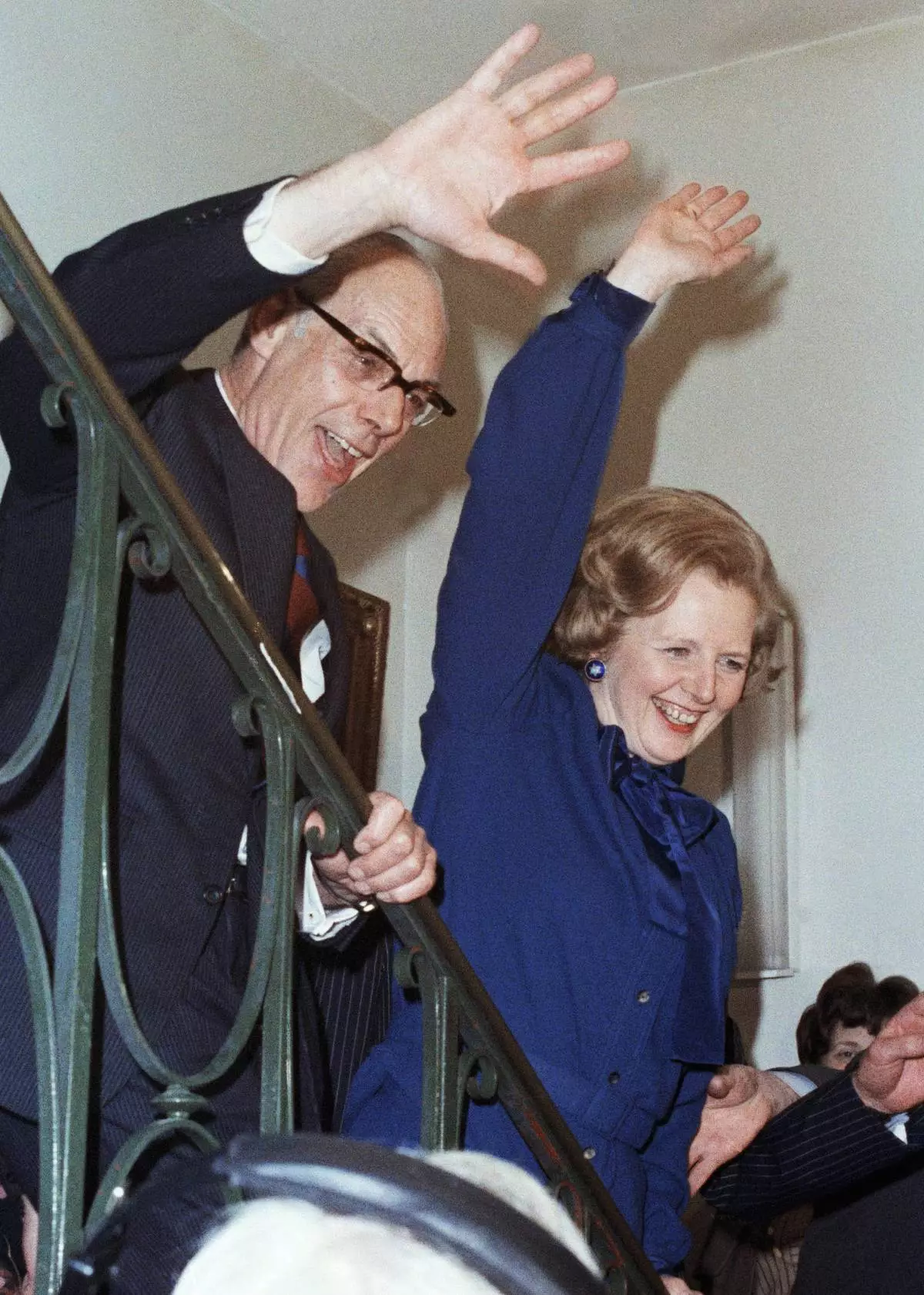
FILE - Britain's Conservative Party Leader Margaret Thatcher with her husband Dennis gives a jubilant wave at her party headquarters on election night in London, May 4, 1979. Britain’s upcoming general election on July 4, 2024, is widely expected to lead to a change of government for the first time in 14 years. Britain's general election in 1979 is without doubt the most consequential since 1945, with Margaret Thatcher becoming the country’s first female prime minister on a radical Conservative economic agenda. At its heart, Thatcherism represented a total rethink over the role of the state. (AP Photo/Bob Dear, File)
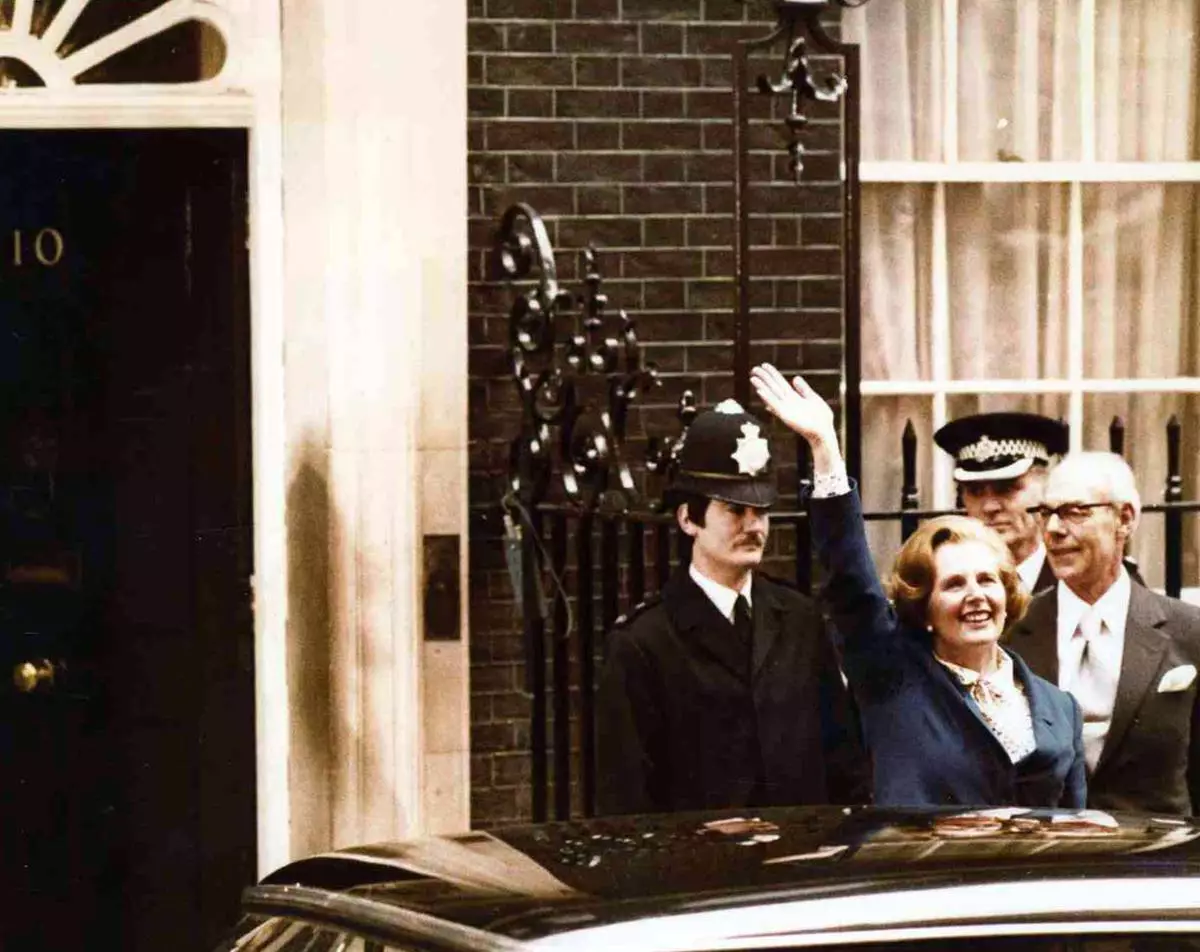
FILE - Britain's Conservative Party leader Margaret Thatcher waves to wellwishers as she arrives at 10 Downing Street, London with her husband Denis at right, May 4, 1979. Britain’s upcoming general election on July 4, 2024, is widely expected to lead to a change of government for the first time in 14 years. Britain's general election in 1979 is without doubt the most consequential since 1945, with Margaret Thatcher becoming the country’s first female prime minister on a radical Conservative economic agenda. At its heart, Thatcherism represented a total rethink over the role of the state. (AP Photo/Bob Dear, File)



